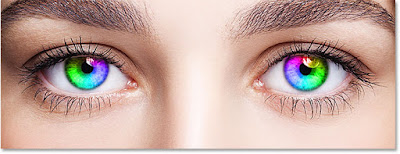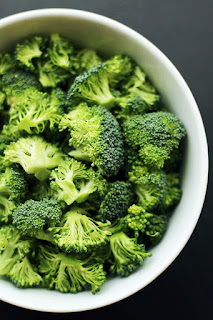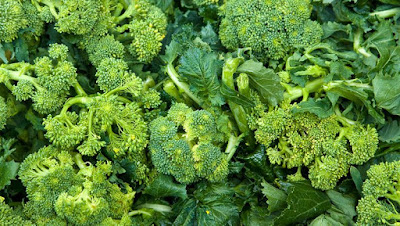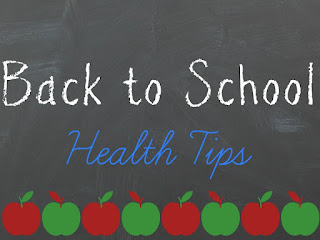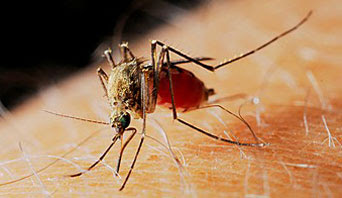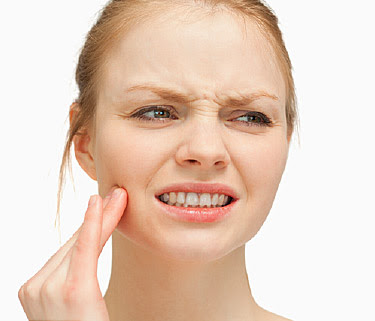Broccoli is known to be a hearty and tasty vegetable which is rich in dozens of nutrients. It is said to pack the most nutritional punch of any vegetable. When we think about green vegetables to include in our diet, broccoli is one of the foremost veggies to come to our mind. Coming from the cabbage family, broccoli can be categorized as an edible green plant.
Here are some of the benefits of broccoli:
1. Cancer prevention: Broccoli shares cancer fighting and immune boosting properties with other cruciferous vegetables such as cauliflower, Brussels sprouts and cabbage. Broccoli contains properties that depletes estrogens which usually cause cancer in the body. Research shows that broccoli is extremely suitable for preventing breast and uterus cancer.
2. Cholesterol reduction: Like many whole foods, broccoli is packed with soluble fiber that draws cholesterol out of your body. This is because the fiber in broccoli helps bind with bile acids in the digestive tract. This makes excreting cholesterol out of our body easy. According to a research by the Institute of Food Research, a particular variety of broccoli can help reduce the blood LDL-cholesterol levels by 6 per cent.
3. Reducing allergic reaction and inflammation: Research has shown the ability of kaempferol to lessen the impact of allergy-related substances on our body. Broccoli even has significant amounts of omega 3 fatty acids, which are well known as anti-inflammatory. Along with this, broccoli can also help people suffering from arthritis as broccoli contains sulforaphane, a chemical that blocks the enzymes that can cause joint destruction and hence lead to inflammation.
4. Powerful antioxidant: Broccoli contains antioxidants that can help the body in a variety of ways. Broccoli is deeply concentrated with vitamin C, making it great for immunity. Other than this, broccoli also contains flavonoids which help recycle the vitamin C efficiently. It is also enriched with carotenoids lutein, zeaxanthin, beta-carotene and other power packed antioxidants.
5. Bone health: Broccoli contains high levels of both calcium and vitamin K, both of which are important for bone health and prevention of osteoporosis. Along with calcium, broccoli is also full of other nutrients like magnesium, zinc and phosphorous. Because of these properties, broccoli is extremely suitable for children, elderly and lactating mothers.
6. Heart health: The anti-inflammatory properties of sulforaphane, one of the isothiocyanates (ITCs) in broccoli, may be able to prevent (or even reverse) some of the damage to blood vessel linings that can be caused by inflammation due to chronic blood sugar problems. Broccoli is great for heart health as it contains fibers, fatty acids and vitamins that help regulating blood pressure in the body. This also helps in reducing bad cholesterol, hence leading to a healthy heart. Broccoli helps protecting blood vessels from damaging as well.
7. Diet aid: Broccoli is a good carb and is high in fiber, which aids in digestion, prevents constipation, maintains low blood sugar, and curbs overeating. Along with this, broccoli is also great for weight loss because it is rich in fiber. It is an ideal green vegetable to include in your salads and completing your five coloured vegetables everyday. In addition to this, broccoli also contains proteins, making it suitable for vegetarians that are otherwise not able to complete their protein requirement.
8. Great for detoxification: Since broccoli is rich in fiber, it can help get rid of toxins through the digestive tract. Other than this, broccoli is also full of antioxidants that help in overall detoxification of the body. Broccoi includes special phytonutrients that help in the body's detox process. This means that the body gets rids of unwanted contaminants. Broccoli also contains isothiocyanates, which help in the detox process at the genetic level.
9. Skin care: Skin care not only includes glow, but also its immunity. Since broccoli is a powerhouse of antioxidants and nutrients like vitamin C and minerals such copper and zinc, broccoli helps in maintaining a healthy skin. This means it also protects the skin from getting infections as well as keep the natural glow of your skin. Broccoli is full of vitamin K, amino acids and folates, making it ideal for maintaining healthy skin immunity.
10. Eye care: Broccoli contains beta-carotene, vitamin A, phosphorous and other vitamins such B complex, vitamin C and E. All these rich nutrients are great for eye health as these help in protecting the eyes against mascular degeneration, cataract and even repairs damage done by harmful radiations we go through by being constantly on our phones or being in front of a screen.
11. Anti-ageing: Since broccoli is enriched with vitamin C, which has numerous antioxidant properties, it is great for anti-ageing. This is because antioxidants help fight the free radicals responsible for ageing. These free radicals often damage the skin. Eating broccoli regularly helps in reducing fine lines, wrinkles, skin issues like acne and even pigmentation.
All credits goes to the blog owner.

